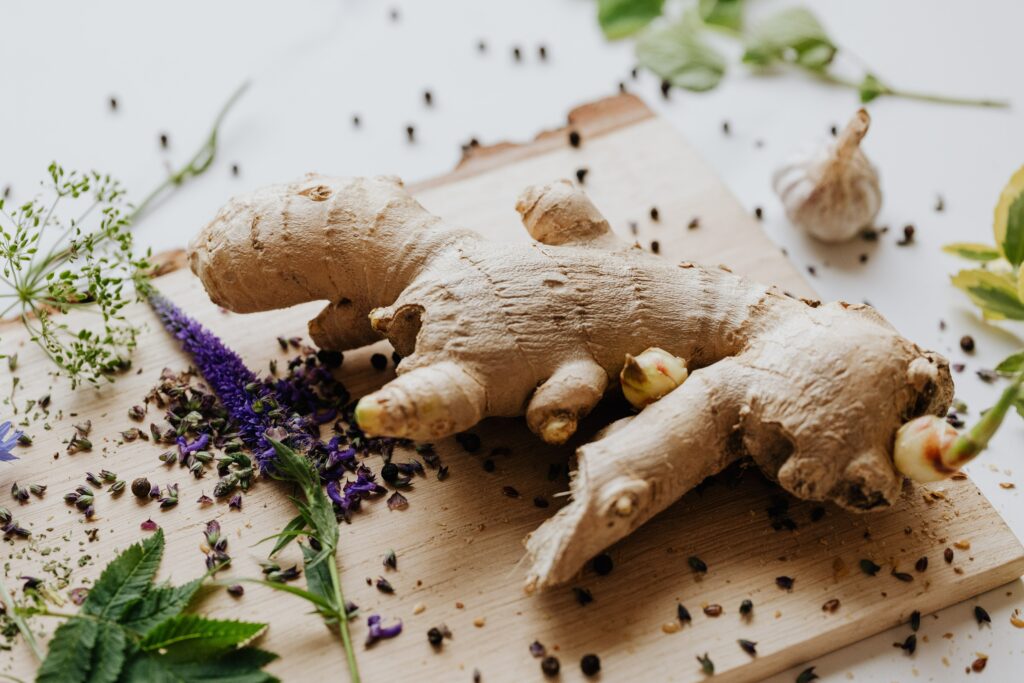
Ginger, Sheng Jian-Singabera
Zingiber officinale (Zingiberaceae)
Ginger is known around the world for its strong and spicy culinary flavor as well as its medicinal properties. It originated from South East Asia and has traveled throughout the world ever since. Ginger is an absolute staple in my home and is in my top ten favorites to have on hand! I love to use fresh and dried root for an upset stomach by drinking it in a tea.
Depending on your needs you can add other supporting herbs to make your own custom blend! My usual additions are mint and/or marshmallow root. I frequently deal with bloating and IBS symptoms, these herbs have helped me more times than I can count. I also use ginger chews that are like a little spicy sweet treat. They are great to keep in the car or in your purse and eat whenever your stomach is uneasy. They can be found in most local vitamin shops or health food stores.
With such popularity, there have been multiple studies conducted on the different benefits and constituents of our beloved ginger root. Because ginger and its metabolites appear to accumulate in the gastrointestinal tract, the consistent observations of ginger exerting many of its effects in this area are not surprising. Ginger has been purported to exert a variety of powerful therapeutic and preventive effects and has been used for thousands of years for the treatment of hundreds of ailments from colds to cancer (1) It is high in vitamin C, vitamin B6, micronutrients like magnesium, potassium, copper, manganese, fiber, and water. It is also high in phytochemicals and polyphenols. (4)
Parts Used: Rhizome (Root)
Key Constituents: Phenolic ( gingerols, shogaols, and paradols) and terpene compounds
Energetics: Warming and Drying
Ginger Uses and Research
Digestive Problems
Ginger has been used for generations to aid with digestive upset. Whether you have a sour stomach, bloating or indigestion ginger is a great tool to help aid your symptoms. For people who struggle with frequent indigestion, a 2015 study shows taking ginger before a meal can help significantly.
Nausea
Ginger is the first thing I run to when nausea strikes. My top 3 uses for nausea are in a tea, ginger chews, and ginger ale. Research data indicate that ginger and its constituents accumulate in the gastrointestinal tract, which supports the many observations of ginger’s effectiveness as an anti-nausea agent and as a possible colon cancer-preventing compound (1).
Respiratory Conditions
Due to ginger’s antiviral activity, it is usually found in many home remedy recipes for colds, flu, and coughs. Also used to boost the immune system to ward off respiratory illnesses.
Pain Relief
Research shows that the active component gingerol has a powerful anti-inflammatory effect which makes ginger a great helper for pain relief. A research study for menstrual pain was done and ginger was just as effective as the medication for pain relief.
High Blood Pressure
Research indicates that ginger has the potential to be used as a preventive for hypertension as well as its ability to reduce the probability of illness.
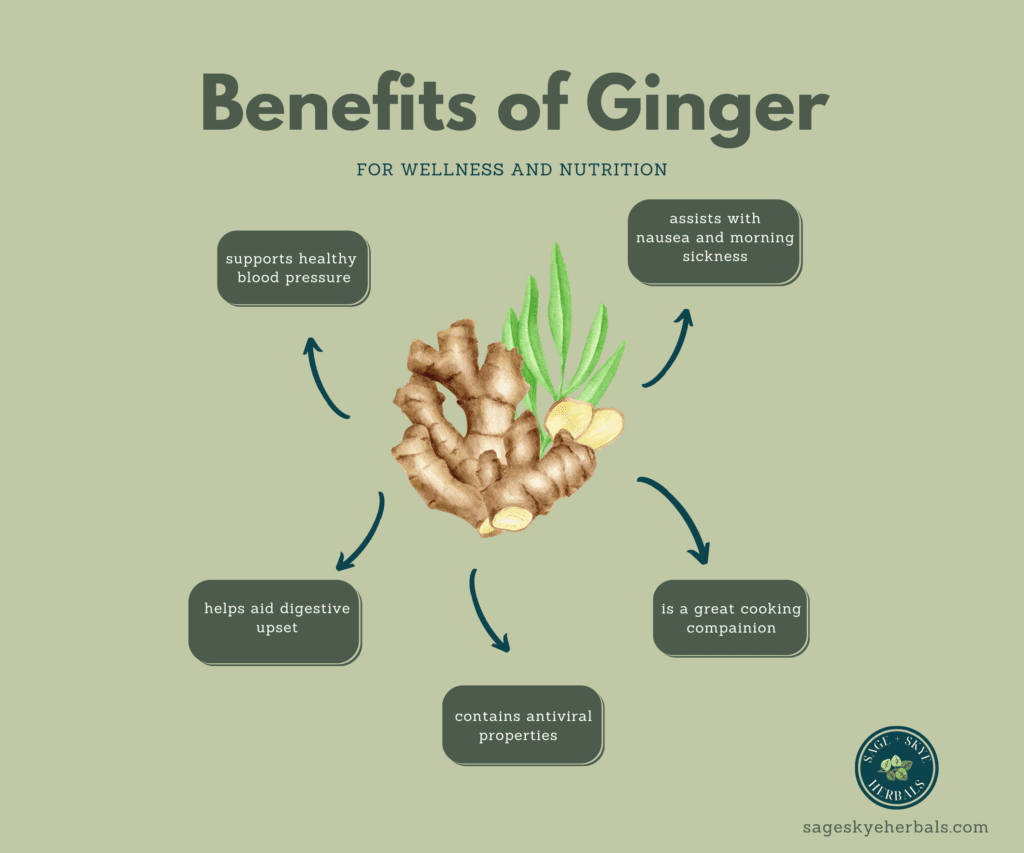
Magick/Folklore
It is thought ancient Greeks originated gingerbread by eating ginger wrapped in bread after meals to aid in healthy digestion. In Japan, some believe that the root is a protector from evil and illness. They even have a festival dedicated to ginger! In the Middle Ages, it’s said that ginger was used to ward off the plaque and was so popular as a spice that it was used as much as salt and pepper.
Preparations
Infusion– 2 tsp dried or 3 tsp fresh to a cup of warm water. Take 3/4 cup to 1 cup up to 3 times a day
Tincture– Up to 1 tsp twice a day. Recommended to dilute with water or juice
Capsule– 75mg capsule once an hour for morning or motion sickness (only take when needed)
Essential Oil– Dilute up to 5 drops in a carrier oil and apply topically for aches
Seasoning– Use ground ginger for seasoning in your recipes or chopped diced ginger to add some zest to your dish.
Safety and Precautions
Don’t take concentrated forms of ginger if you suffer from peptic ulcers. Use essential oil topically only. Essential oil should not be used internally. Less than 2 grams of dried ginger or less than 4 grams of fresh ginger have been suggested as safe to use while pregnant or taking anticoagulants. Always consult with your doctor before taking any herbs or supplements for medical use.
Disclaimer: These statements have not been evaluated by the Food and Drug Administration. This product is not intended to diagnose, treat, cure or prevent any disease.

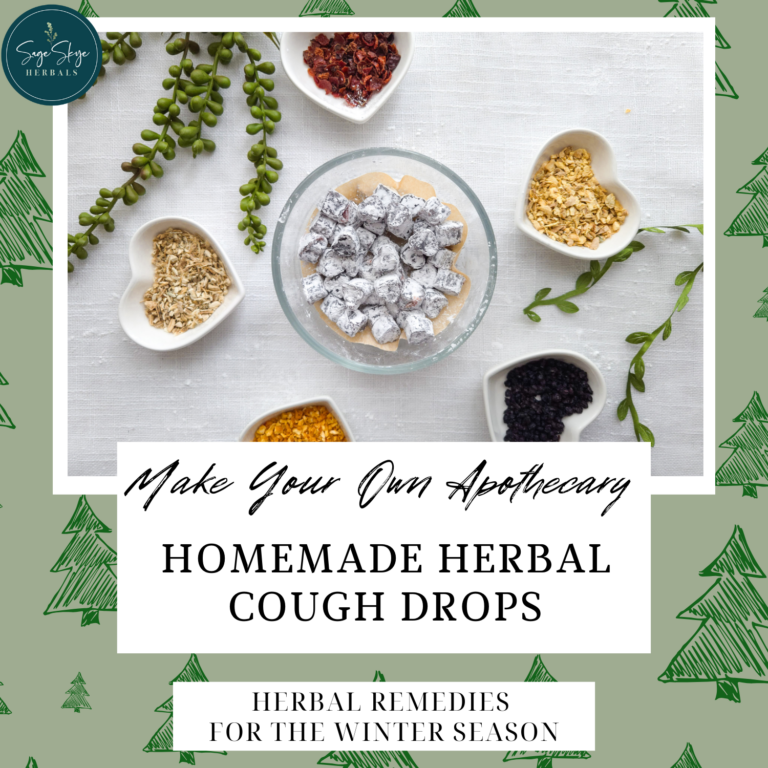
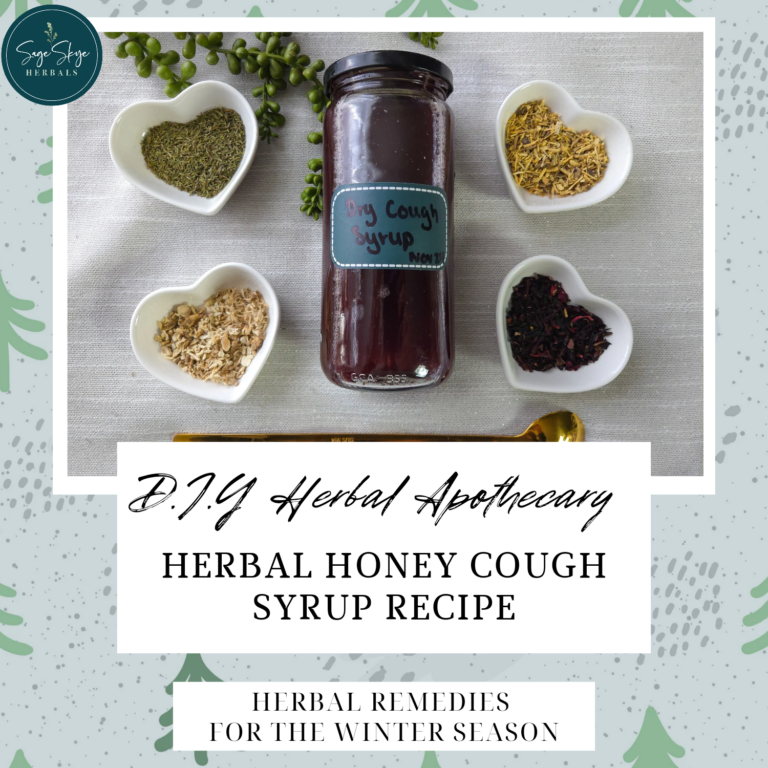
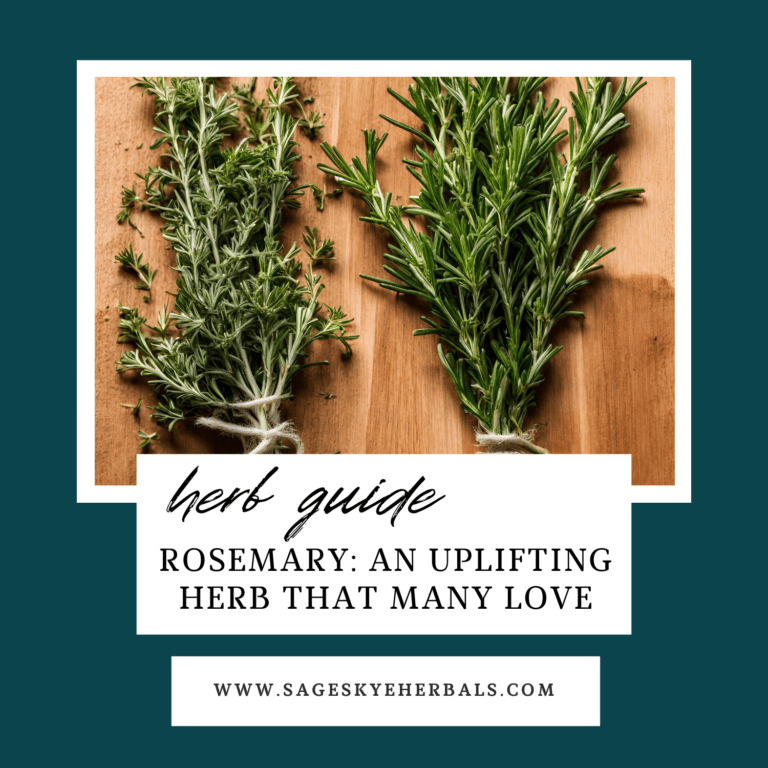
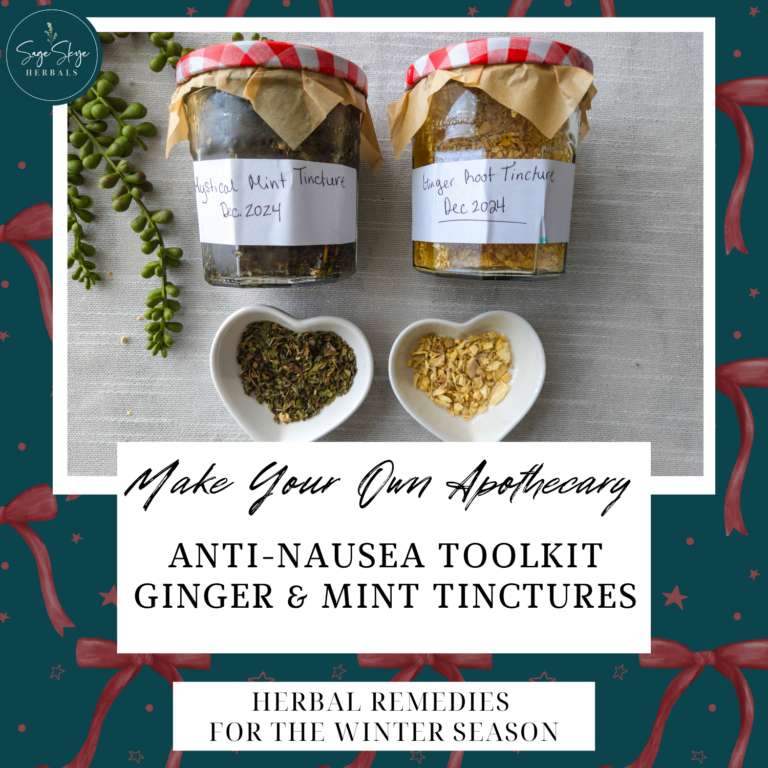

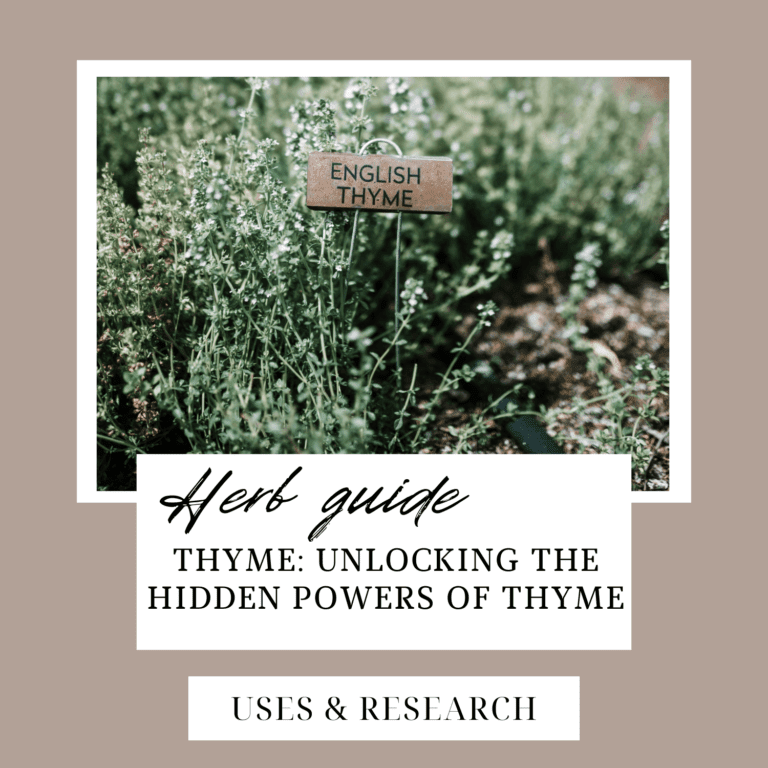
4 Comments